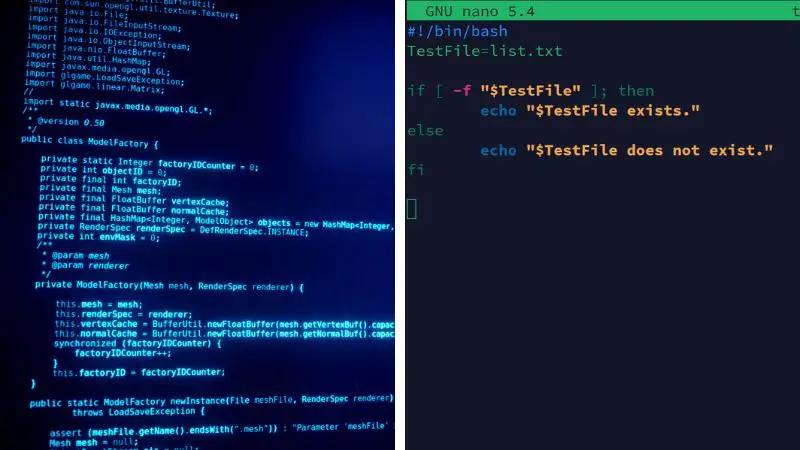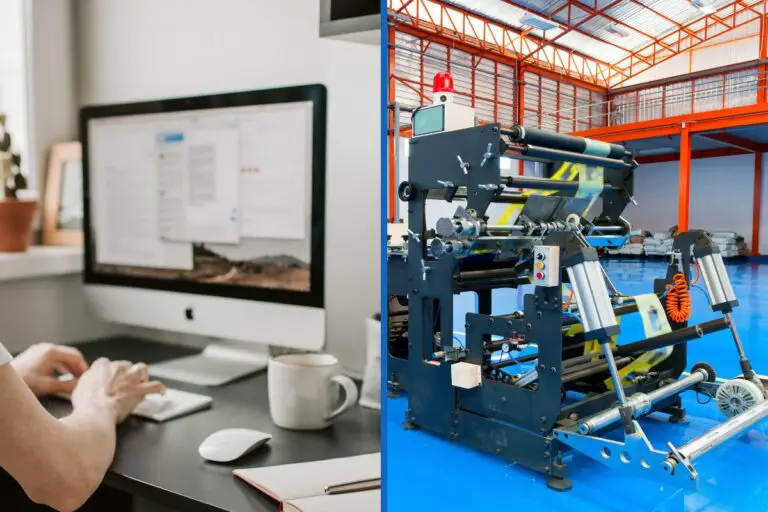Programmer vs Scripter: What’s the Real Difference?
Ever scratched your head wondering what the difference is between a programmer and a scripter? You’re not alone! It’s a common question, especially in our tech-savvy world. Understanding the difference is like knowing the tools in your toolbox, and lucky for you, I’ve got the scoop.
The main difference between a programmer and a scripter is that a programmer focuses on designing and writing comprehensive software using complex algorithms, while a scripter creates and modifies smaller scripts to automate specific tasks or link existing components.
So, that’s the gist of it, but there’s more to explore. Stick around, and we’ll dive into the nitty-gritty of these two roles.
What Do Programmers and Scripters Do?
Tasks of a Programmer
A programmer is like a master chef in the kitchen of coding. They whip up full-fledged software, from games to business tools.
Programmers are involved in the whole process, from understanding what needs to be built, to designing how it will work, to actually putting the pieces together.
Here’s what a typical programmer’s day might involve:
- Planning and designing software
- Writing complex code
- Testing and debugging
Tasks of a Scripter
A scripter, on the other hand, is more like the handyman of the digital world. They write small, helpful bits of code called scripts. These scripts often automate tedious tasks, like sorting data or setting up a computer’s daily backup.
Scripters focus on small, specific tasks that make the digital world run more smoothly.
Here’s what they might work on:
- Creating scripts to automate processes
- Modifying existing scripts
- Finding ways to make computer tasks easier
How Do They Learn Their Skills?
Learning Path for Programmers
Becoming a programmer is like learning to build a house.
Most programmers have degrees in computer science or related fields. You need a good foundation of knowledge, such as understanding algorithms and data structures.
But here’s the simple route:
- College degree (optional but common)
- Learn programming languages like Java, C++, or Python
- Gain experience through projects and internships
Learning Path for Scripters
To be a scripter, you don’t need a degree or extensive knowledge. It’s like learning basic home repair.
You need to understand how things work, but not necessarily the underlying principles.
Here’s what it might look like:
- Learn scripting languages like Bash or JavaScript
- Practice by writing simple scripts
- Gain experience through small tasks and projects
Which Tools Are Used by Each?

Tools Used by Programmers
Programmers often work with a wide range of tools. These tools help them design, write, and test code. It’s like having a complete toolbox for building something big.
Some of these tools include:
- Integrated Development Environments (IDEs)
- Version control systems like Git
- Debugging tools
Tools Used by Scripters
Scripters have a more focused set of tools. These are like the essential tools in a home repair kit.
These might include:
- Simple text editors
- Scripting languages like Python or PowerShell
- Tools specific to their operating system or environment
Where Do They Work and With Whom?
Working Environments for Programmers
Programmers are usually found in tech companies, startups, or large corporations. They often work in teams, bouncing ideas off one another and working together to build something big.
Workplaces include:
- Tech companies
- Startups
- Large businesses with in-house software development
Working Environments for Scripters
Scripters often work alone or in smaller groups. They might be freelancers or work in IT departments, making sure everything runs smoothly.
Common workplaces:
- IT departments
- Freelance opportunities
- Small businesses
What’s the Pay and Progression Like?
Salary and Career Progression for Programmers
Being a programmer is often a long-term career with good pay. It’s a path that offers growth and potential leadership roles.
Here’s the scoop:
- Competitive salaries
- Opportunities for career growth
- Potential for leadership roles
Salary and Career Progression for Scripters
Scripters might have a more flexible or specific career path. They might not earn as much as programmers, but they often have the freedom to work on different projects.
Here’s the rundown:
- Moderate salaries
- Opportunities for specialized roles
- Flexibility in tasks and projects
Comparison Table
| Aspect | Programmer | Scripter |
|---|---|---|
| Tasks | Planning, writing, testing code | Creating, modifying scripts |
| Learning Path | College degree, deep knowledge | Self-learning, basic understanding |
| Tools | IDEs, Git, debugging tools | Text editors, scripting languages |
| Work Environment | Tech companies, startups | IT departments, freelance |
| Salary & Career Growth | Competitive salaries, growth | Moderate salaries, flexibility |
Related Questions
How Long Does It Take to Become a Programmer or Scripter?
Becoming a programmer often takes more time and commitment. Think of it like building a career. You might need a degree and years of practice. On the other hand, becoming a scripter is more accessible. It’s like learning a hobby. With some practice and a good guide, you can start scripting in months or even weeks.
Can a Scripter Become a Programmer?
Absolutely! A scripter can move into programming with some dedication and learning. Think of it like upgrading your toolkit. You’ll need to learn more complex tools and principles, but it’s definitely doable.
What’s the Best Way to Start Learning Programming?
For programming, consider a computer science degree or online courses in languages like Python. It’s like taking a carpentry class. For scripting, you might start with online tutorials or books on Bash or JavaScript. Think of it like picking up a DIY guide. Both paths offer great opportunities for hands-on practice and learning.






